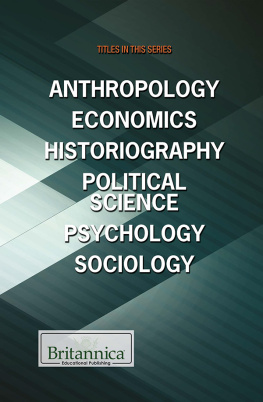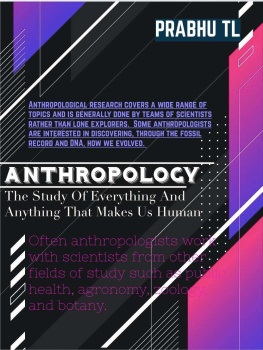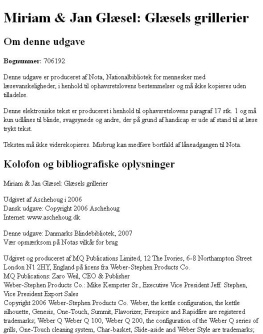First published 1990 by Westview Press
Published 2019 by Routledge
52 Vanderbilt Avenue, New York, NY 10017
2 Park Square, Milton Park, Abingdon, Oxon OX14 4RN
Routledge is an imprint of the Taylor & Francis Group, an informa business
Copyright 1990 Taylor & Francis
All rights reserved. No part of this book may be reprinted or reproduced or utilised in any form or by any electronic, mechanical, or other means, now known or hereafter invented, including photocopying and recording, or in any information storage or retrieval system, without permission in writing from the publishers.
Notice:
Product or corporate names may be trademarks or registered trademarks, and are used only for identification and explanation without intent to infringe.
Library of Congress Cataloging-in-Publication Data
Social change and applied anthropology : essays in honor of David W.
Brokensha / edited by Miriam S. Chaiken and Anne K. Fleuret.
p. cm. (Westview special studies in applied anthropology)
Includes bibliographical references.
1. Applied anthropology.2. Social change.3. Human geography.
4. Brokensha, David.I. Brokensha, David.II. Chaiken, Miriam S.
III. Fleuret, Anne Klingelhofer, 1947-.IV. Series.
GN397.5.S67 1990
303.4dc20
90-12092
CIP
ISBN 13: 978-0-367-28746-7 (hbk)
At the American Anthropological Association meetings in 1987 a group of David W. Brokenshas former students discussed our reactions to his announcement of his intention to retire in 1989. All of us were keenly aware of Davids influence on our lives; we were attempting to apply our anthropological perspective to issues of economic and social equity and resource conservation and management as well as attempting to act as advocates for unempowered people, all of which parallel David Brokenshas lifelong interests. Our professional lives, and to a great extent our ethical and personal goals, have been shaped by our interaction with David Brokensha. We decided that a collection of essays in his honor, focusing on issues which had concerned him throughout his professional career, would be an appropriate tribute to his roles as anthropologist, teacher, guide, and friend.
In the following months the editors contacted a number of anthropologists who had professional connections with David Brokensha; former students, colleagues, and other applied anthropologists with similar interests. The enthusiasm for the project was overwhelming, and without exception everyone we contacted spoke of how influential David had been in their lives and their work. He is a man of tremendous sensitivity, integrity, and professional capability, and while his unassuming nature would likely make him embarrassed by such effusive expressions of sentiment, the response from other anthropologists is a fitting testimony to his influence on all of us.
David Brokenshas contributions to applied anthropology and development studies are notable. He has carried out pioneering research on several issues which have become increasingly important in recent years. He was one of the first anthropologists to focus on the consequences of social change in the era of independence in Africa, especially in his research in the newly independent Ghana (Brokensha 1966). He was also an innovator in examining the social aspects of river basin development and new lands settlement, which have continued to be major concerns both of development anthropologists and of the Institute for Development Anthropology, which he helped establish.
Long before it was commonplace, Brokensha advocated paradigms of applied anthropology which are now central to the discipline. He stressed the need for equity in development, focusing especially on the effects of development on women. He emphasized the importance of incorporating indigenous perspectives and knowledge in development planning and the need for sustainable natural resource management. These views were incorporated into the graduate courses he taught and were represented in his numerous publications.
He insisted that if applied anthropologists were to be effective they must learn the languages and concerns of other disciplines, participate in interdisciplinary research, publish in ways that would reach wider audiences rather than addressing only the anthropological community, and make their results and recommendations available to a broad constituency of development administrators, local politicians, rural villagers, and academics. Toward these ends, he has engaged in collaborative research and co-authored papers not only with other anthropologists, but also with geographers, economists, foresters, political scientists, and sociologists. He has given workshops and public addresses internationally, ranging from professional presentations at the Food and Agriculture Organization (FAO) of the United Nations, to facilitating discussions among African villagers, to providing training on social forestry to foresters in Malawi and middle-level bureaucrats in India. He has consistently tried to bring anthropological awareness and the concerns of those at the bottom to those at the top.
David Brokensha is interested in many geographic regions and has participated in research or consulted around the world, but his most important contributions have dealt with sub-Saharan Africa, the area of his most enduring interest. His roots in South Africa, and his explicit rejection of his patrimony of racial inequality, have caused him much personal anguish in his lifetime, but rather than distancing himself from the area, he has never ceased to champion the potentials of independent, autonomous African countries. Though mindful of growing social inequality and critical of the formation of indigenous elites in independent African nations, he has consistently admired the richness and diversity of African cultures and the capabilities of Africas indigenous peoples.
David Brokenshas career has been a model of how to be an effective applied anthropologist, and his personal integrity and selflessness have been an inspiration to many. We can be grateful as anthropologists for his enormous contributions to the field of applied anthropology, just as we are grateful as individuals for having had the opportunity to work with and learn from him. It is with affection and admiration that we dedicate this book to David W. Brokensha.
Miriam S. Chaiken
Anne K. Fleuret






